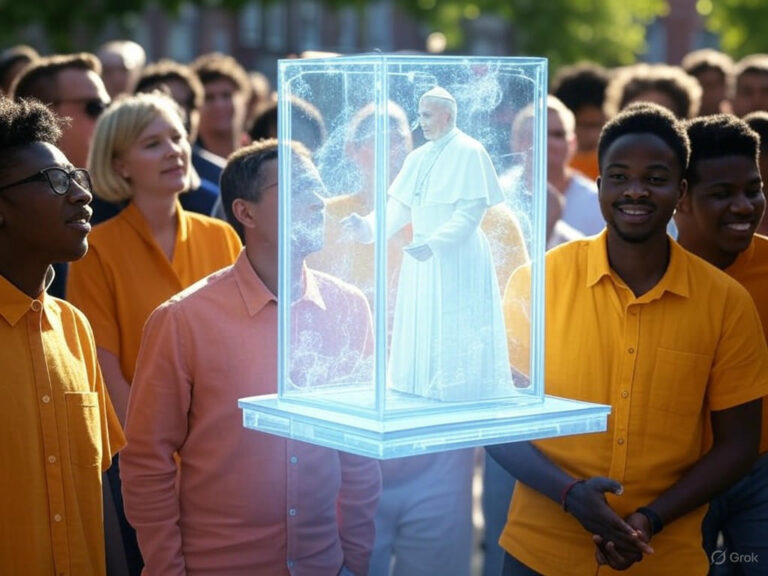
Trump’s Influence on Canadian Election: Dislike Swayed Results
The Unprecedented Impact of U.S. Politics on Canada’s 2025 Election
Have you ever wondered how decisions in Washington could tip the scales halfway across the border? In 2025, Trump’s influence on Canadian election outcomes became impossible to ignore. As Canadians headed to the polls, President Donald Trump’s aggressive policies turned what seemed like a straightforward domestic race into a referendum on national sovereignty. The Liberal Party, led by Prime Minister Mark Carney, not only held onto power for a fourth term but also benefited from a wave of voter backlash against Trump’s tariffs and annexation threats, pushing traditional issues like the economy and healthcare to the sidelines[1].
It’s fascinating to see how external forces can reshape internal politics. Trump’s influence on Canadian election dynamics rallied voters across the spectrum, with polls shifting dramatically in the Liberals’ favor. This wasn’t just about policy; it was about a shared sense of pride and independence that Carney effectively channeled into his campaign.
Trump’s Tariffs and Annexation Threats: A Game-Changer in Canadian Election Influence
Picture this: the Conservative Party, under Pierre Poilievre, was dominating polls with a 20-point lead just months before the vote. But then, Trump’s influence on Canadian election results kicked in with full force. His sudden tariffs on Canadian exports, particularly in the auto industry, threatened jobs for thousands and sparked widespread unease. Add to that his bold—some would say reckless—talk of making Canada the 51st state, and you have a perfect storm that flipped the script.
- Trump’s tariffs hit hard, targeting key sectors and potentially costing billions in trade revenue, which forced Canadian families to rethink their economic future.
- His annexation threats ignited a firestorm of nationalist pride, uniting people who might otherwise disagree on everything from taxes to climate policy.
- As a result, issues tied to Trump’s influence on Canadian election priorities, like defending sovereignty, surged to the top, overshadowing Poilievre’s focus on inflation and housing[2][3].
This shift wasn’t just theoretical; it played out in real time, with voters prioritizing protection against U.S. interference over partisan loyalties. If you’re following international relations, this example shows how one leader’s moves can alter an entire nation’s path.
A Surge in Liberal Support—and the Collapse of Conservative Momentum
Amid this turmoil, Mark Carney positioned himself as the steady hand Canada needed. By emphasizing a strong stance against Trump’s influence on Canadian election outcomes, he turned potential weakness into a rallying cry. Voters who were on the fence suddenly saw the Liberals as the guardians of independence, leading to a notable exodus from the Conservatives.
Election Results at a Glance Under Trump’s Influence
| Party | 2021 Vote (%) | 2025 Vote (%) | 2021 Seats | 2025 Seats |
|---|---|---|---|---|
| Liberal (Mark Carney) | 32.6 | 43.5 | 160 | 168 |
| Conservative (Pierre Poilievre) | 33.7 | 41.4 | 120 | 144 |
| NDP | 17.8 | 6.3 | 25 | 7 |
These numbers tell a story of strategic realignment. Many NDP supporters, wary of Trump’s influence on Canadian election results, tactically voted Liberal to block a Conservative win. It’s a reminder that elections aren’t always about ideology—they’re about timing and context.
Why Canadians Rejected Trump’s Interference in Their Election
At its core, Trump’s influence on Canadian election dynamics stirred a deep-seated resistance. Canadians, known for their politeness, drew a line when it came to their country’s autonomy. Political analyst Terry Milewski captured it well: “Canadians… wanted to see Trump punched in the nose, good and hard. And Carney got that.” This sentiment bridged divides, turning what could have been a divisive campaign into a unified front.
- National identity took precedence, with sovereignty concerns eclipsing everyday worries like rising costs.
- Even some Conservative voters hesitated, fearing that a Poilievre government might not stand firm against U.S. pressures.
- Tactical voting from NDP and Bloc Québécois backers further amplified the Liberals’ gains, all fueled by aversion to Trump’s influence on Canadian election strategies[3][4].
Think about it: in a world of global interconnections, how often do foreign leaders inadvertently boost their neighbors’ resolve? This case is a prime example.
The Response from Canadian Leaders to Trump’s Election Influence
Both Carney and Poilievre publicly condemned Trump’s actions, but their approaches varied. Carney’s messaging, which directly addressed Trump’s influence on Canadian election outcomes, resonated as bold and proactive. He called for a mandate to “deal with Trump,” framing the election as a defense of Canadian values.
- This strategy not only galvanized support but also highlighted the need for diplomatic strength in uncertain times.
- Poilievre, on the other hand, had to walk a tightrope, rejecting Trump’s ideas without alienating potential U.S. allies, which ultimately weakened his position[1][2].
In hindsight, Carney’s ability to turn defense into offense was a masterclass in political adaptation. If you’re interested in leadership lessons, this scenario offers plenty.
Polarization and the Future of Canadian Politics Amid U.S. Influence
The 2025 election laid bare Canada’s growing polarization, with parties consolidating around reactions to Trump’s influence on Canadian election results. The Liberals and Conservatives saw gains, while smaller parties like the NDP faded amid the focus on international threats.
Key Factors in the Liberal Turnaround from Trump’s Influence
- A surge in nationalist fervor directly linked to U.S. policies.
- Strategic voter shifts that prioritized stability over division.
- Carney’s clear, compelling narrative as Canada’s shield against external interference[3][4].
Moving forward, this polarization could redefine alliances. What might this mean for future elections? It’s a question worth pondering as global tensions evolve.
Challenges Ahead for Mark Carney and the Liberals
With a narrow win, Carney now navigates a minority government, balancing domestic needs against the ongoing shadow of Trump’s influence on Canadian election dynamics. Securing deals with other parties will be crucial, especially as tariffs loom large.
- Maintaining coalition harmony while protecting Canadian interests could test his diplomatic skills.
- Economic recovery from potential U.S. trade wars requires innovative strategies, like diversifying export markets.
- And once the dust settles, refocusing on homegrown issues will be key to sustaining public support[3].
For leaders like Carney, this is more than politics—it’s about building resilience. If you’re in a similar position, remember that adaptability can turn challenges into opportunities.
Conclusion: When Dislike Becomes Decisive in Canadian Elections
In the end, Trump’s influence on Canadian election outcomes served as a wake-up call, uniting voters in a way few expected. It wasn’t just about policies; it was about preserving a nation’s identity against outside pressures. As we look ahead, this episode underscores the interconnectedness of global politics and the power of collective resolve.
What are your thoughts on how international figures can sway elections? We’d love to hear from you in the comments below. For more on U.S.-Canada relations, check out our International Relations section, or share this post with friends who follow global affairs.
References
- [1] CBS News. “Canada Election: Trump Tariff and Annexation Threats.” https://www.cbsnews.com/news/canada-election-trump-tariff-annexation-threats/
- [2] Deseret News. “Mark Carney Wins Canadian Election as Trump Threatens Tariffs and Annexation.” https://www.deseret.com/politics/2025/04/29/mark-carney-wins-canadian-election-as-trump-threatens-tariffs-and-annexation/
- [3] The Indian Express. “How Donald Trump Gifted Canada’s Election to the Liberals.” https://indianexpress.com/article/explained/explained-global/how-donald-trump-gifted-canadas-election-to-the-liberals-9973565/
- [4] The Nation. “Canada Liberals Mark Carney Trump.” https://www.thenation.com/article/world/canada-liberals-mark-carney-trump/
- [5] AALL. “Technical Services Law Librarian.” https://www.aallnet.org/tssis/wp-content/uploads/sites/17/2018/01/Technical-Services-Law-Librarian-41-4-June-2016.pdf
- [6] Johns Hopkins University. “CLSP Summer Sentiment Data.” https://www.clsp.jhu.edu/wp-content/uploads/2015/10/WS12-Summer-SentimentData.pdf
Trump’s influence on Canadian election, Canada Liberal Party 2025, Mark Carney victory, US-Canada relations, Trump tariffs, Canadian sovereignty threats, 2025 election results, Pierre Poilievre campaign, nationalist voter backlash, international political interference







